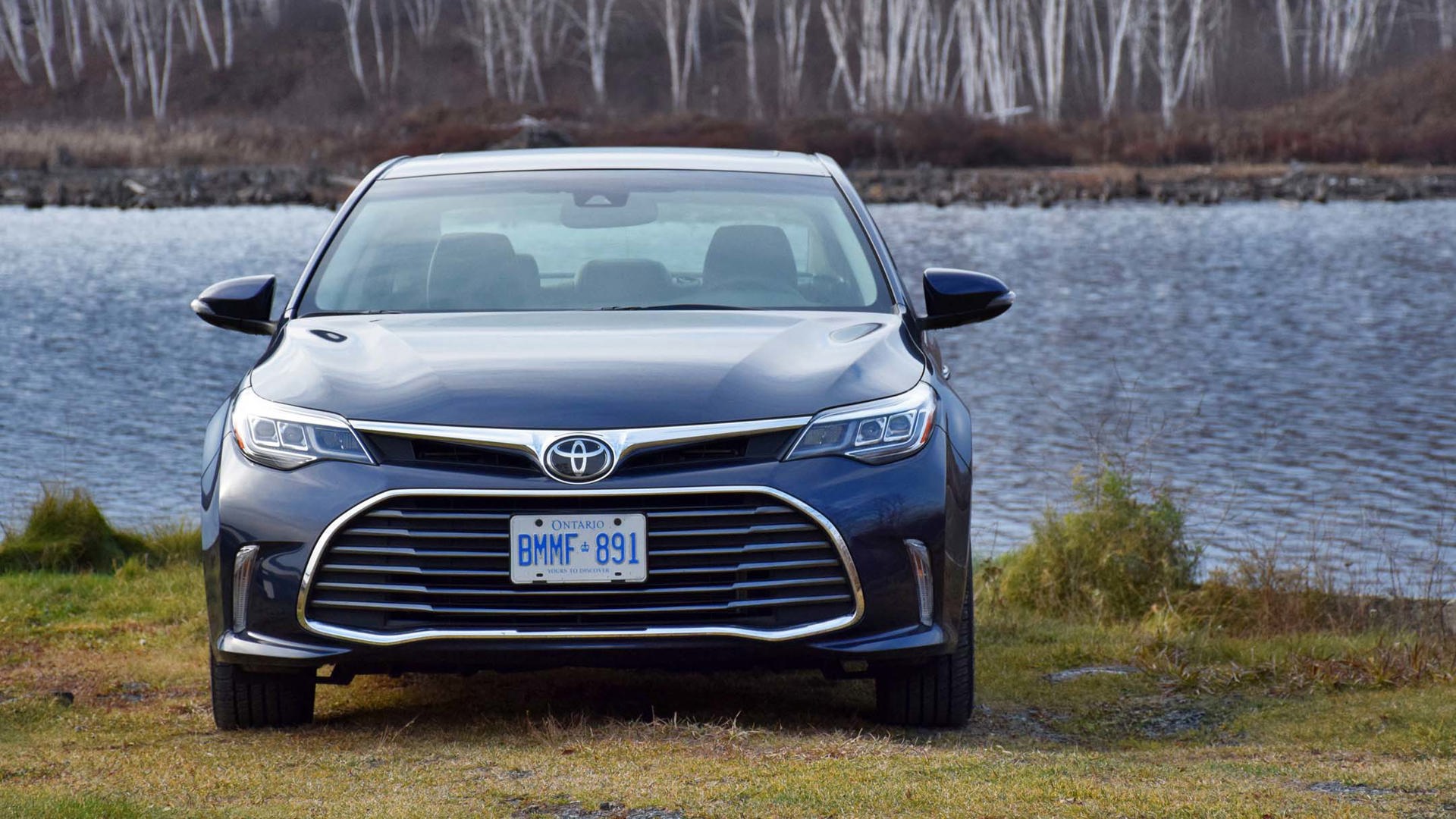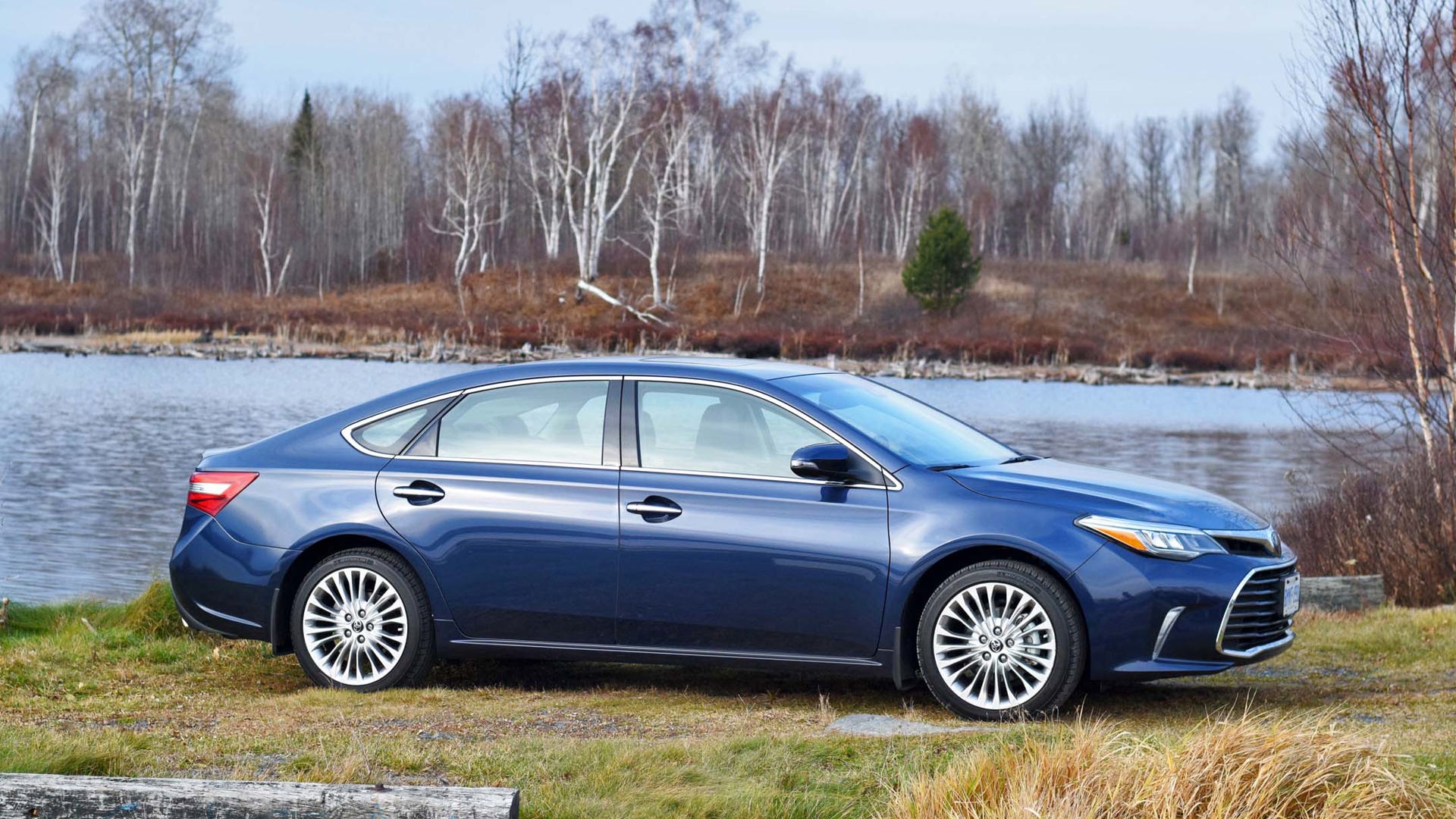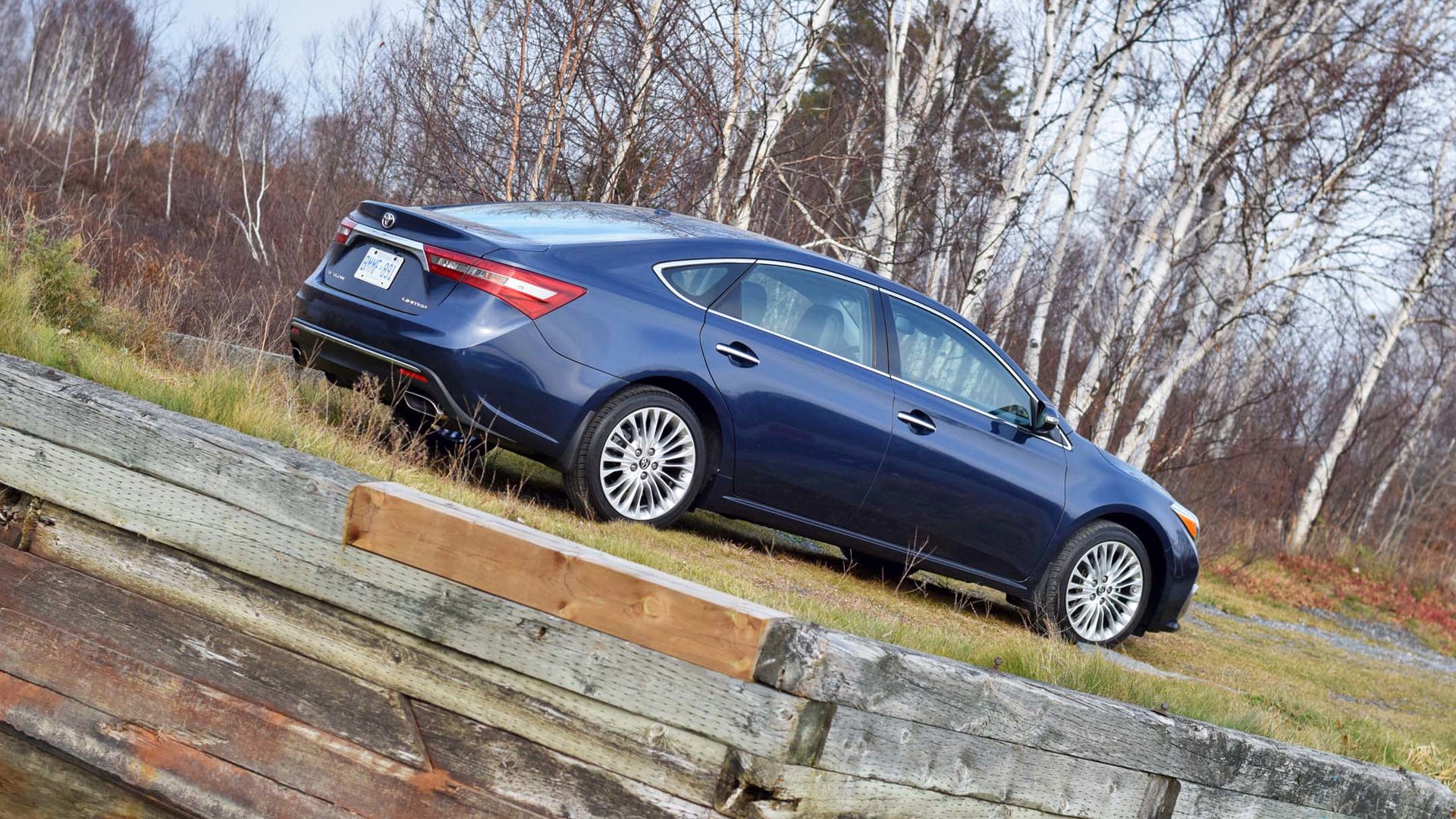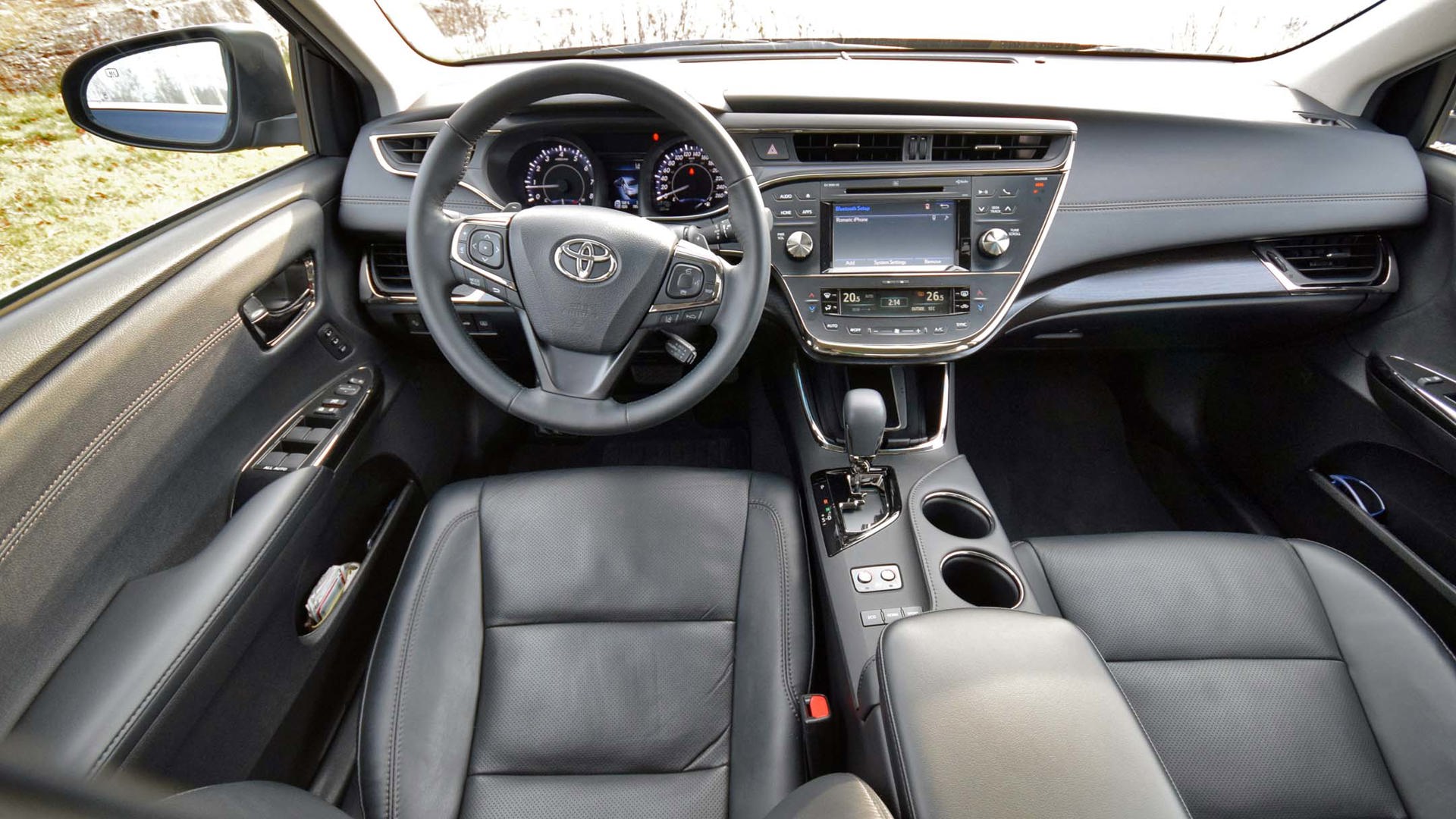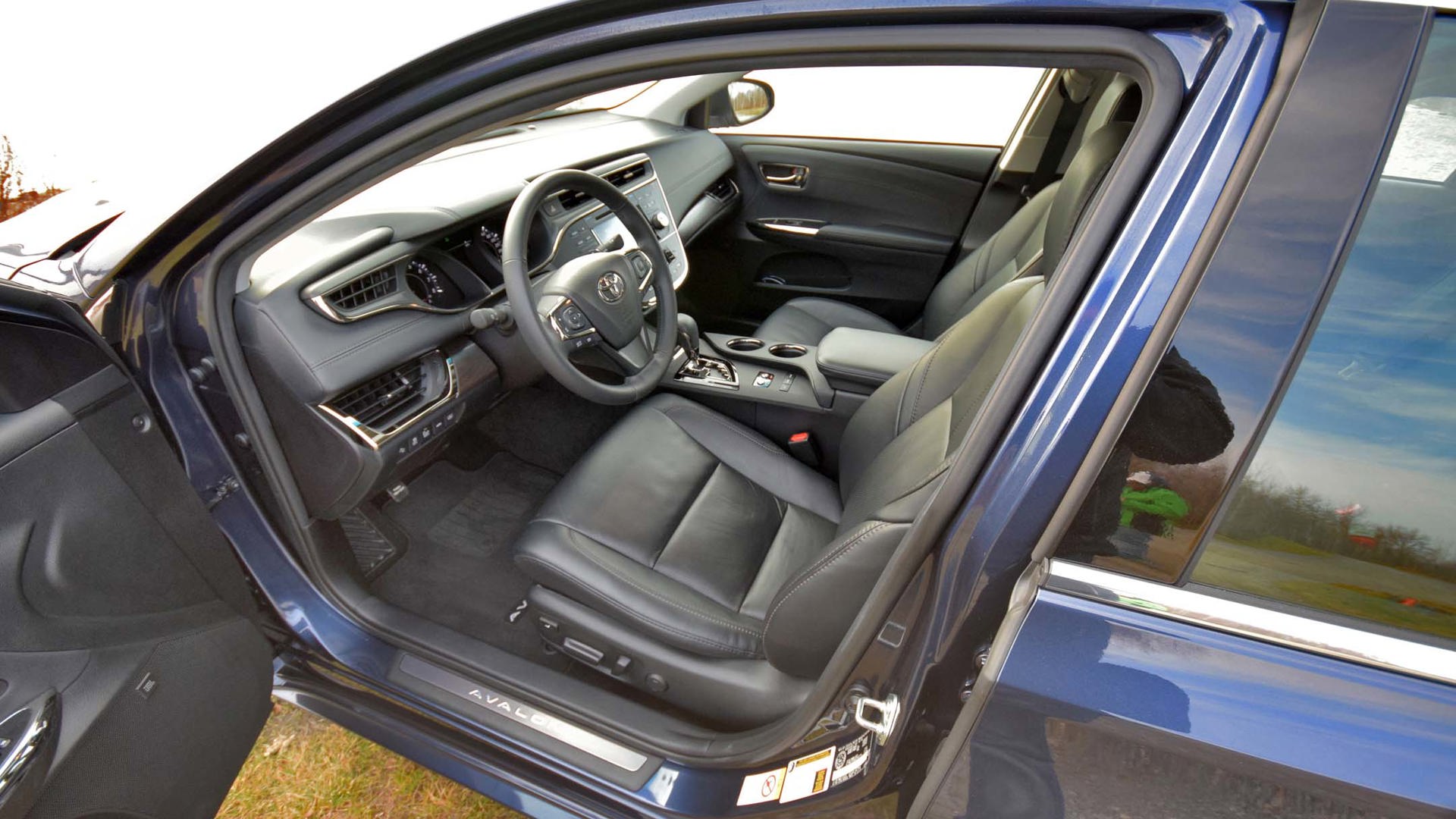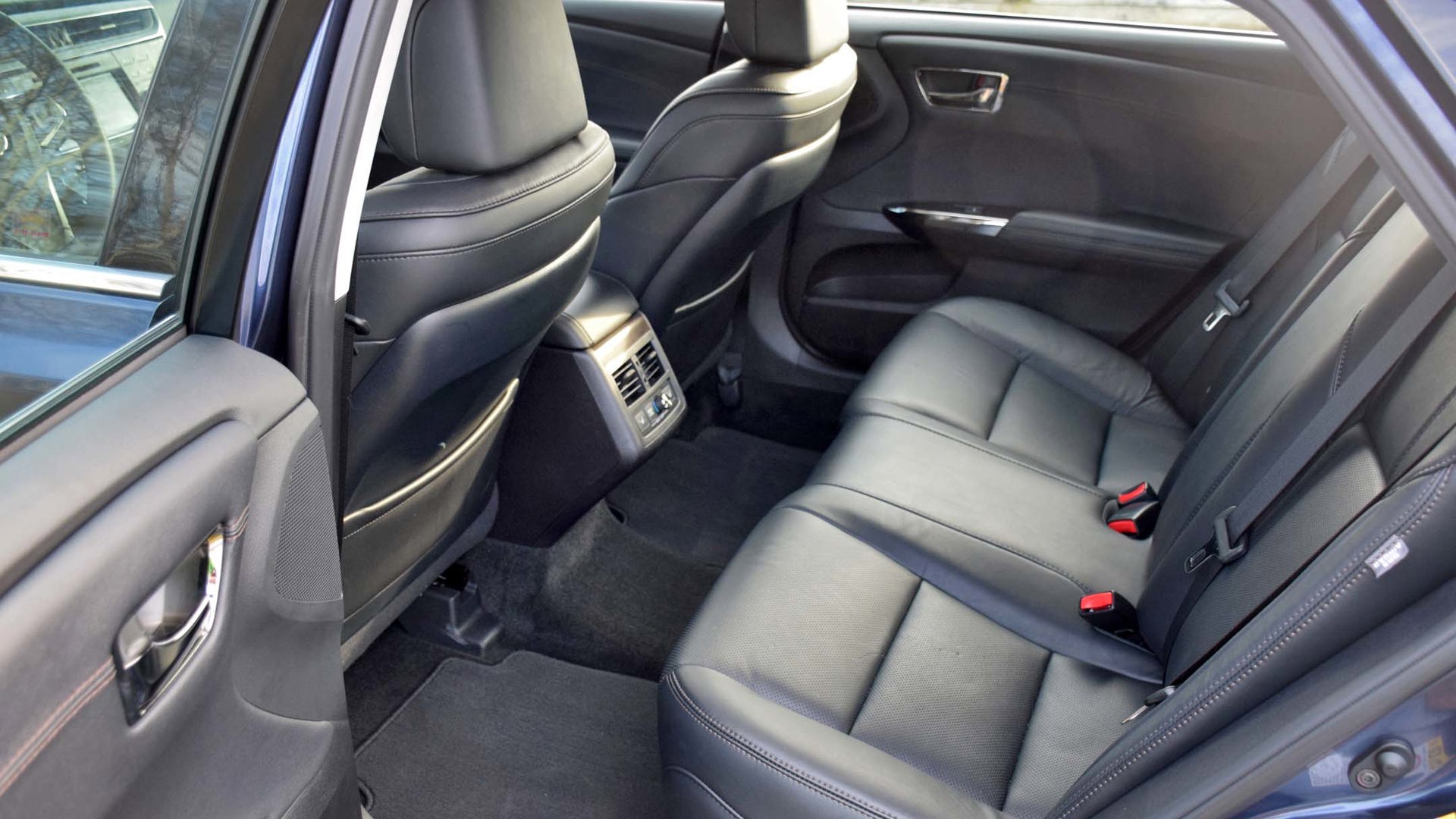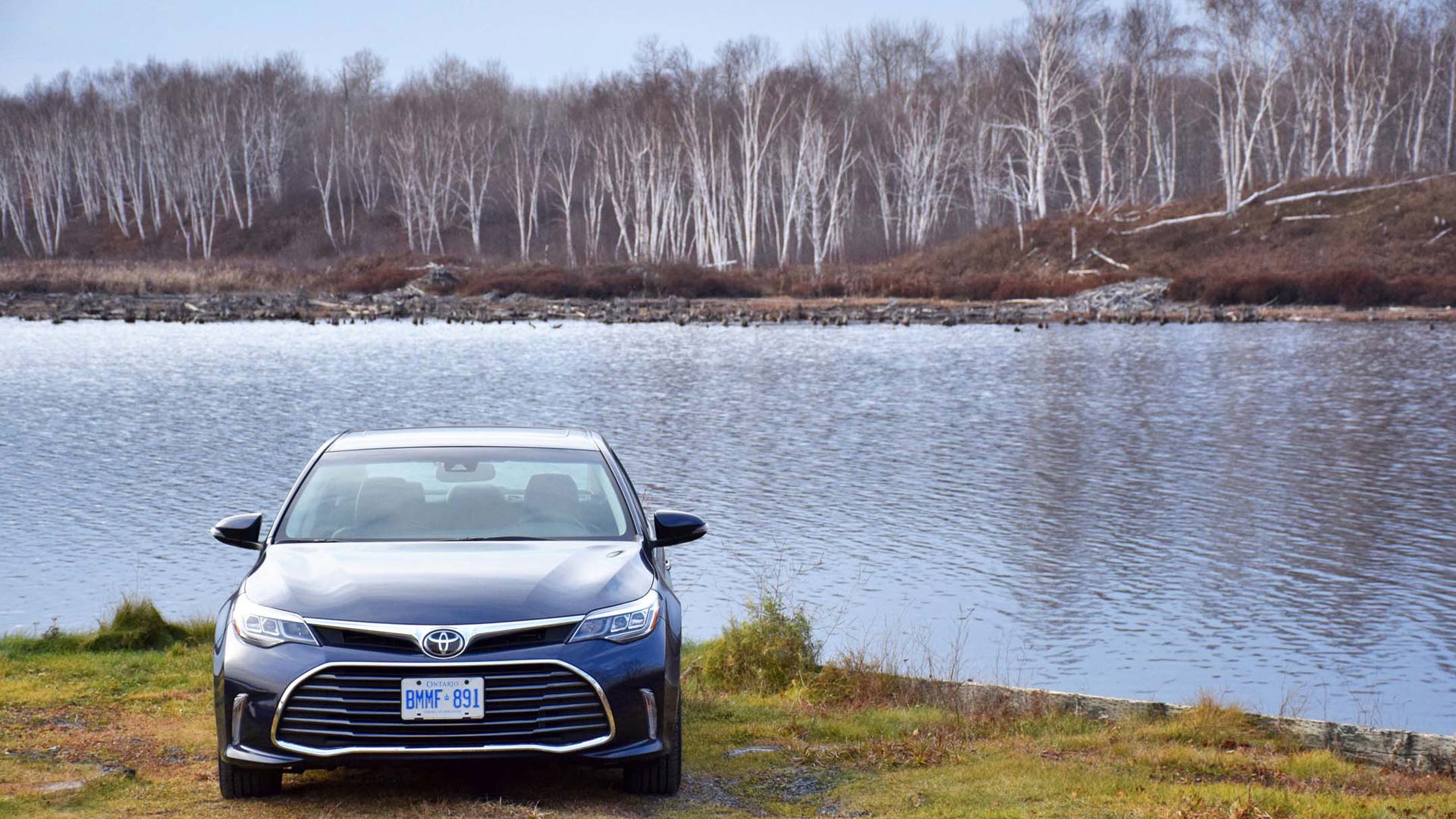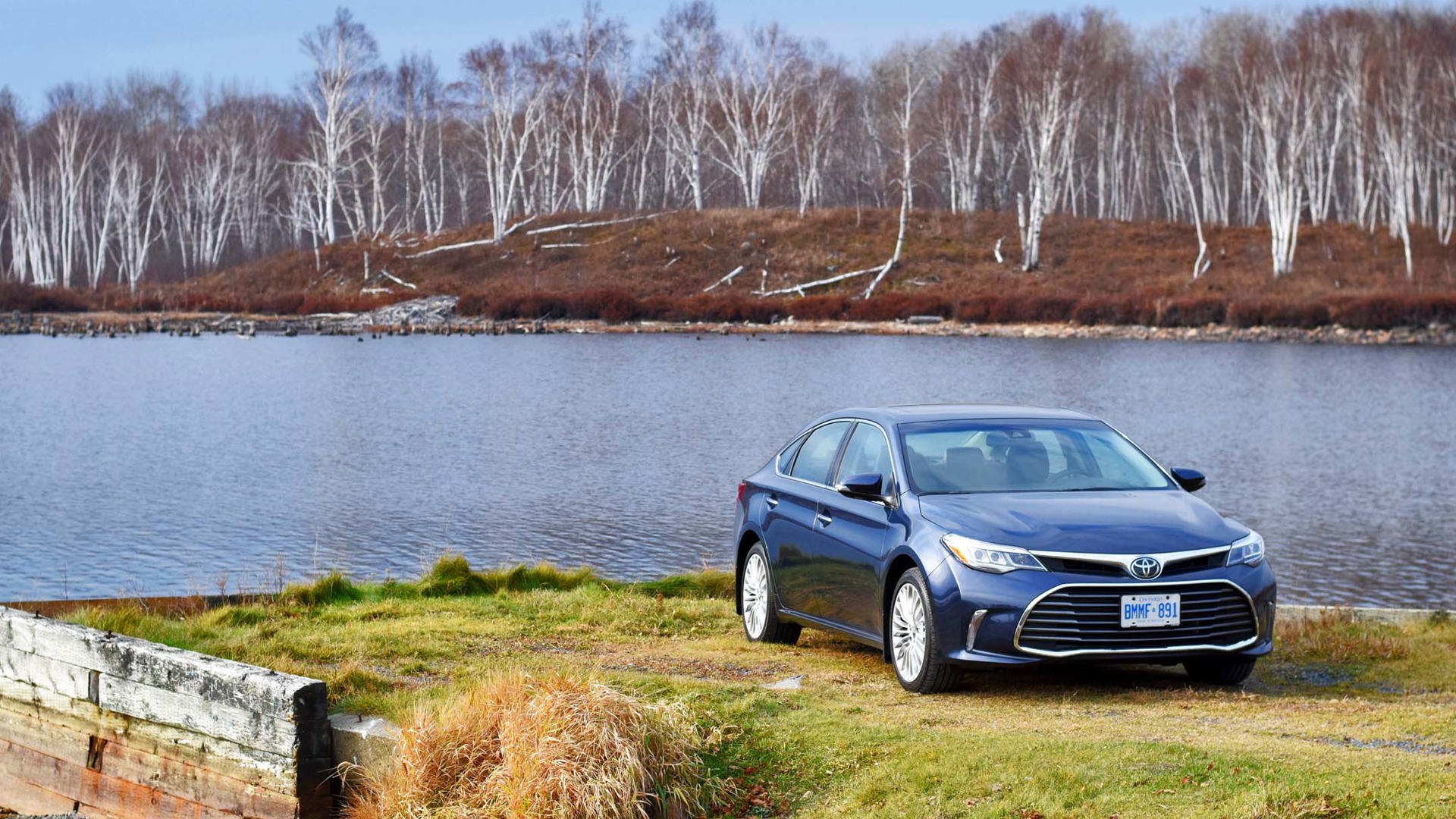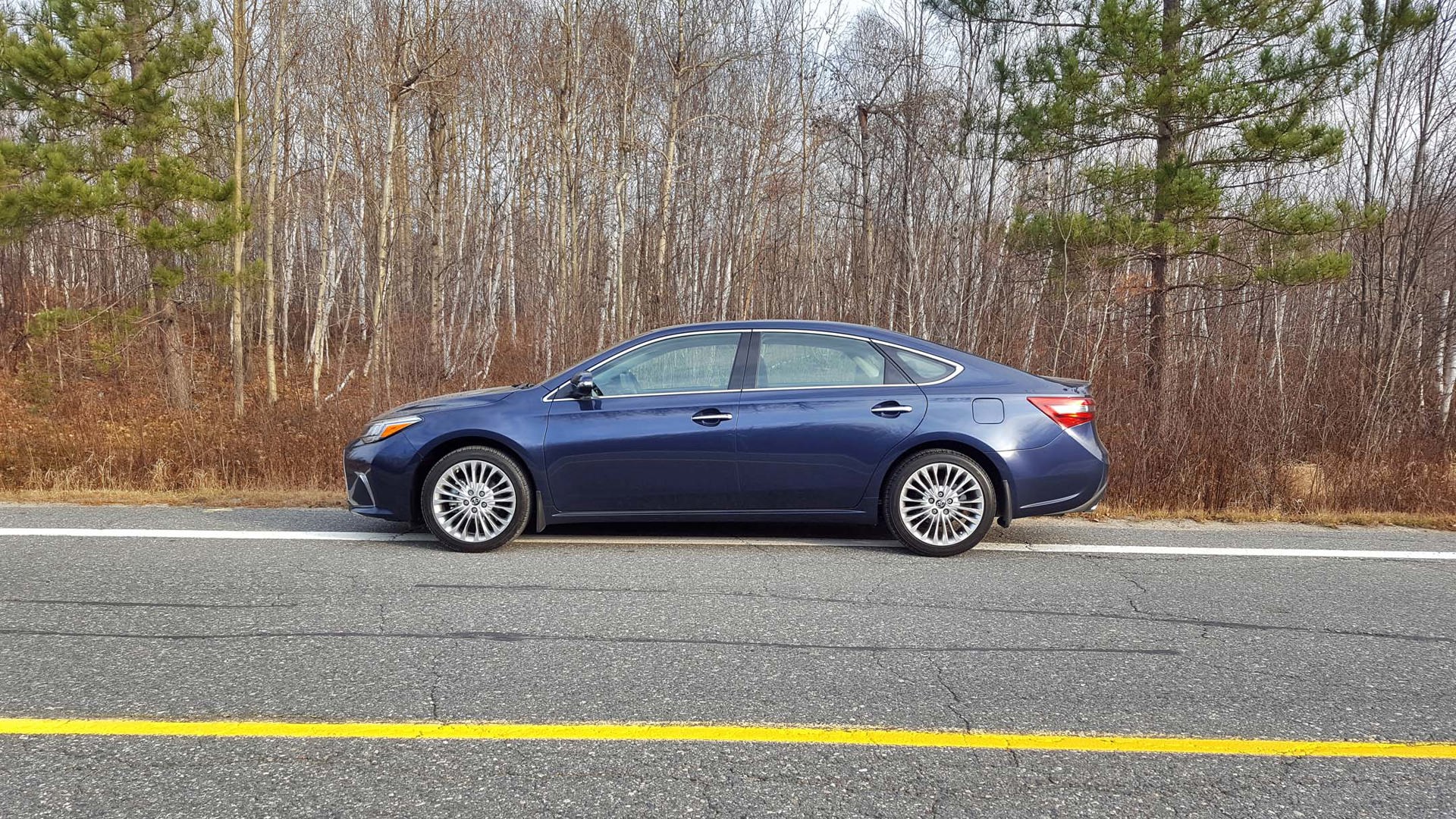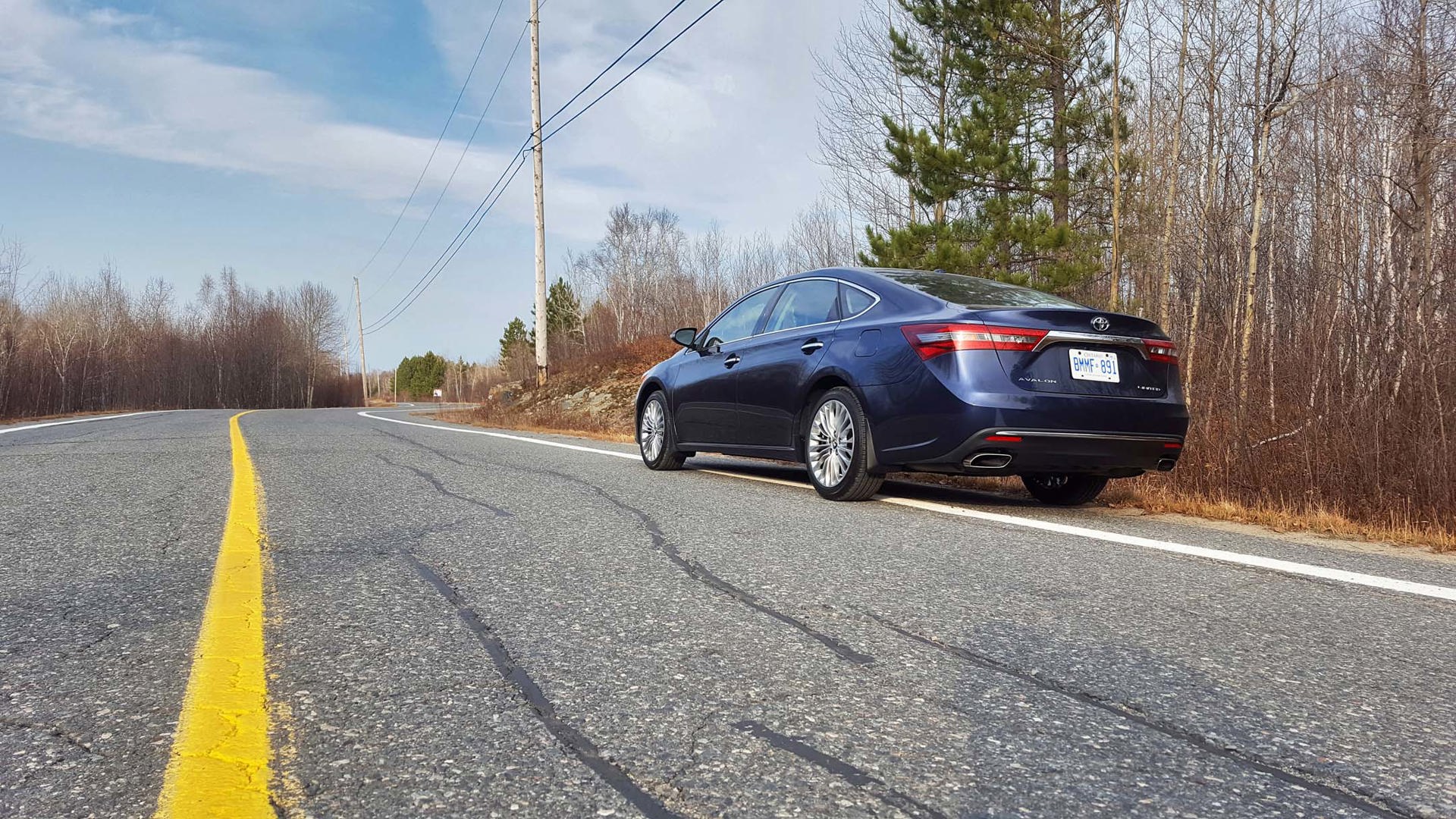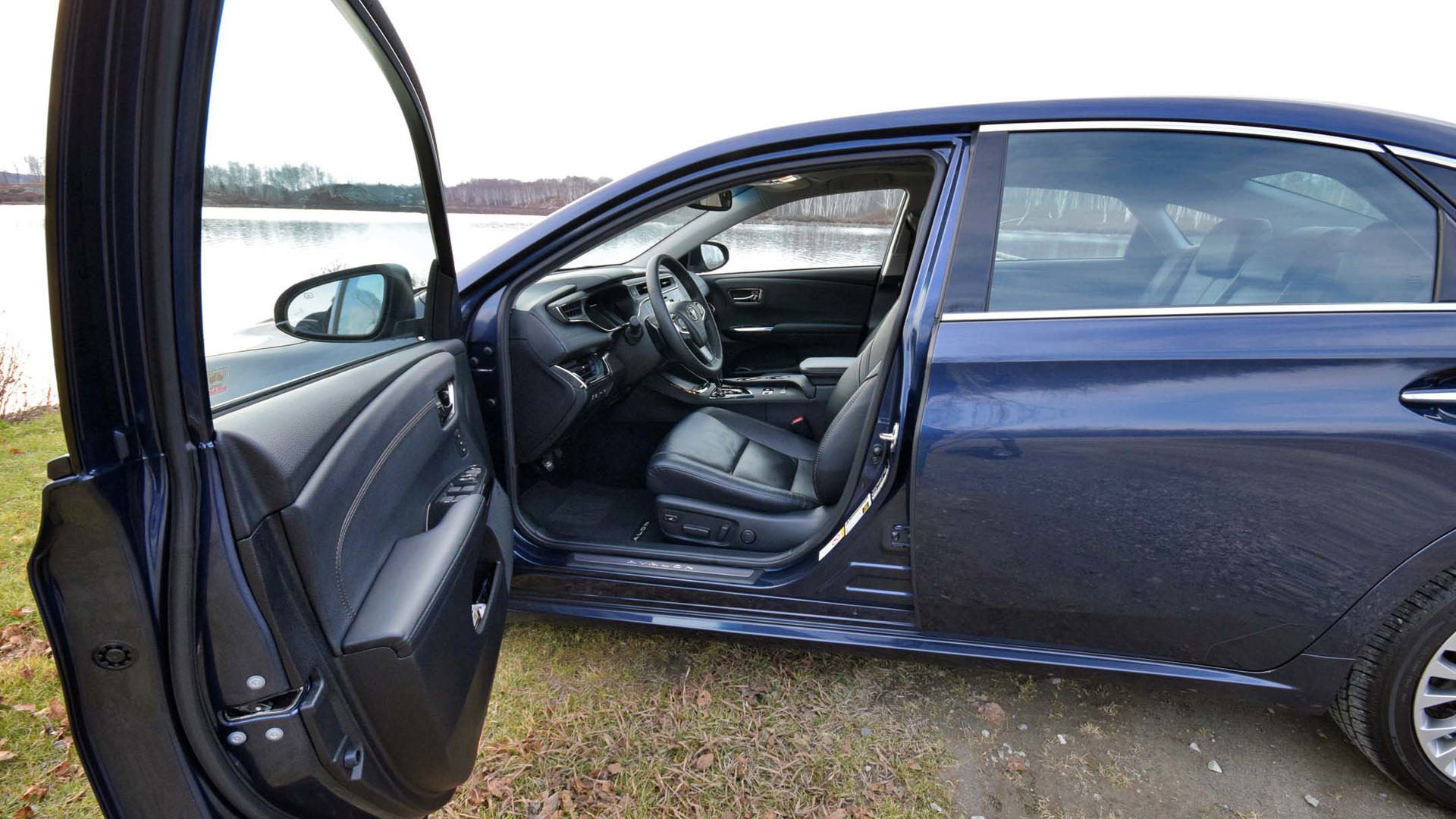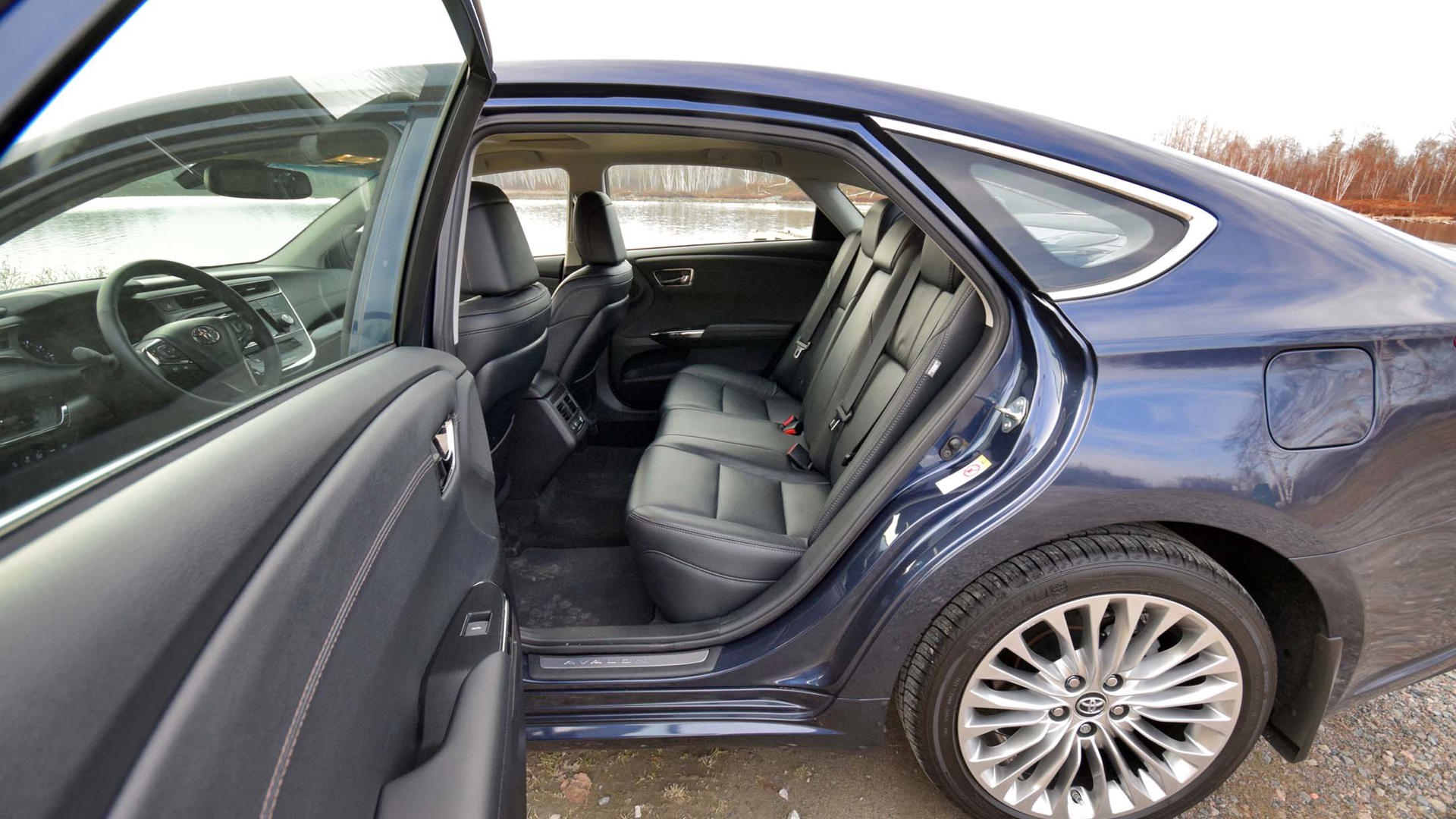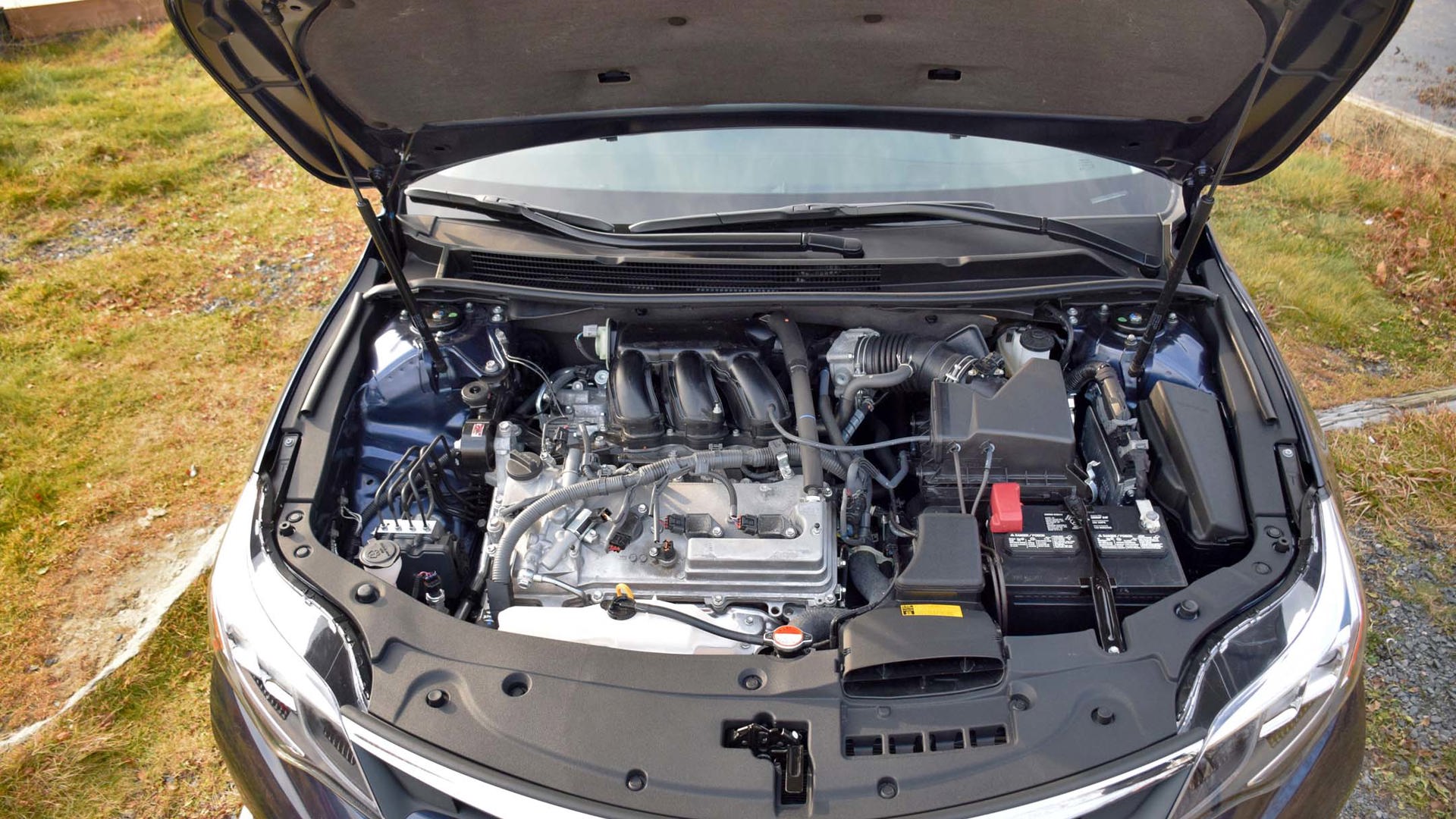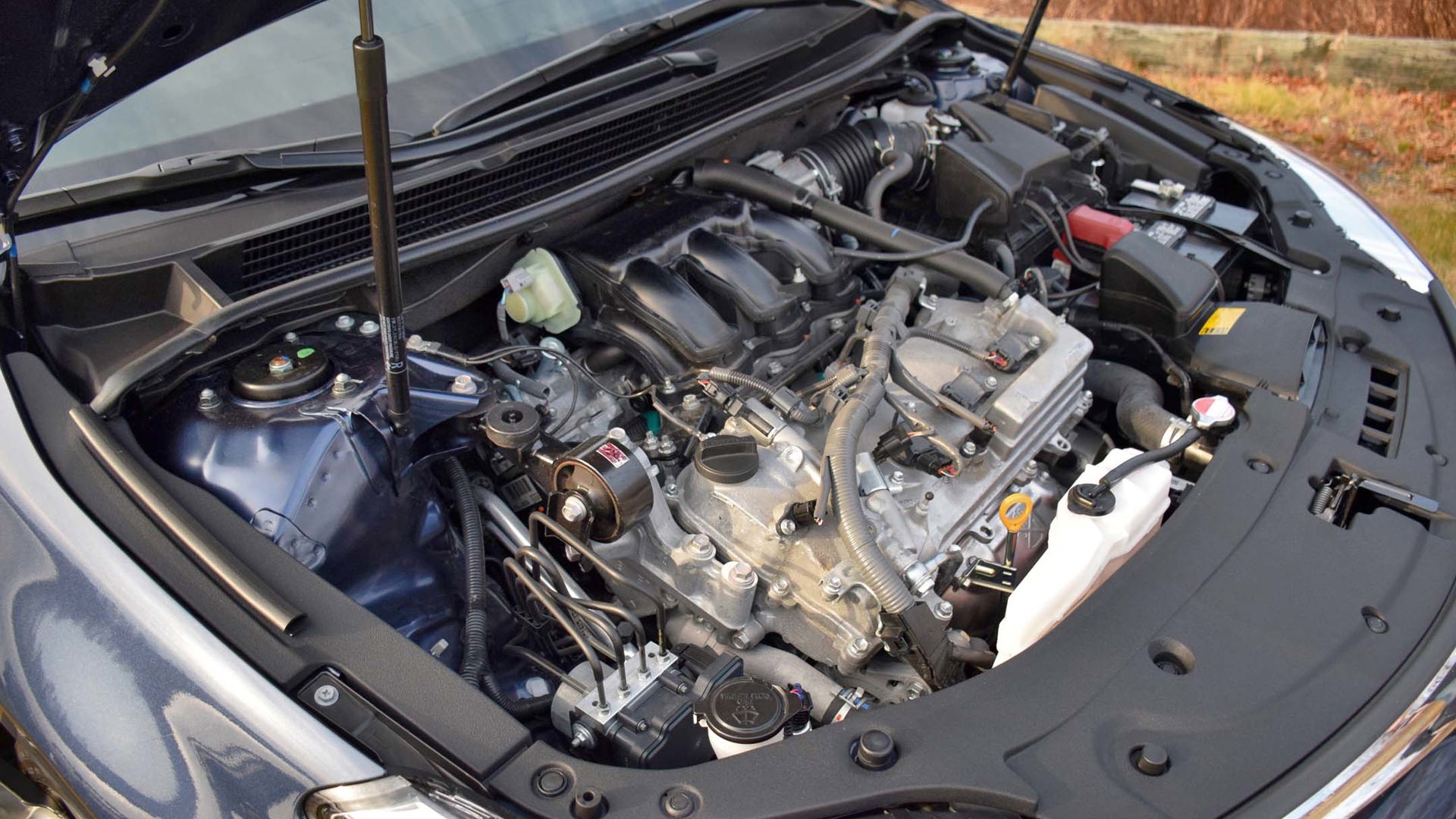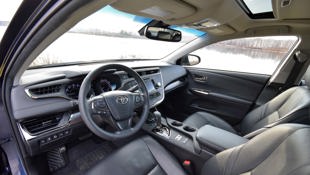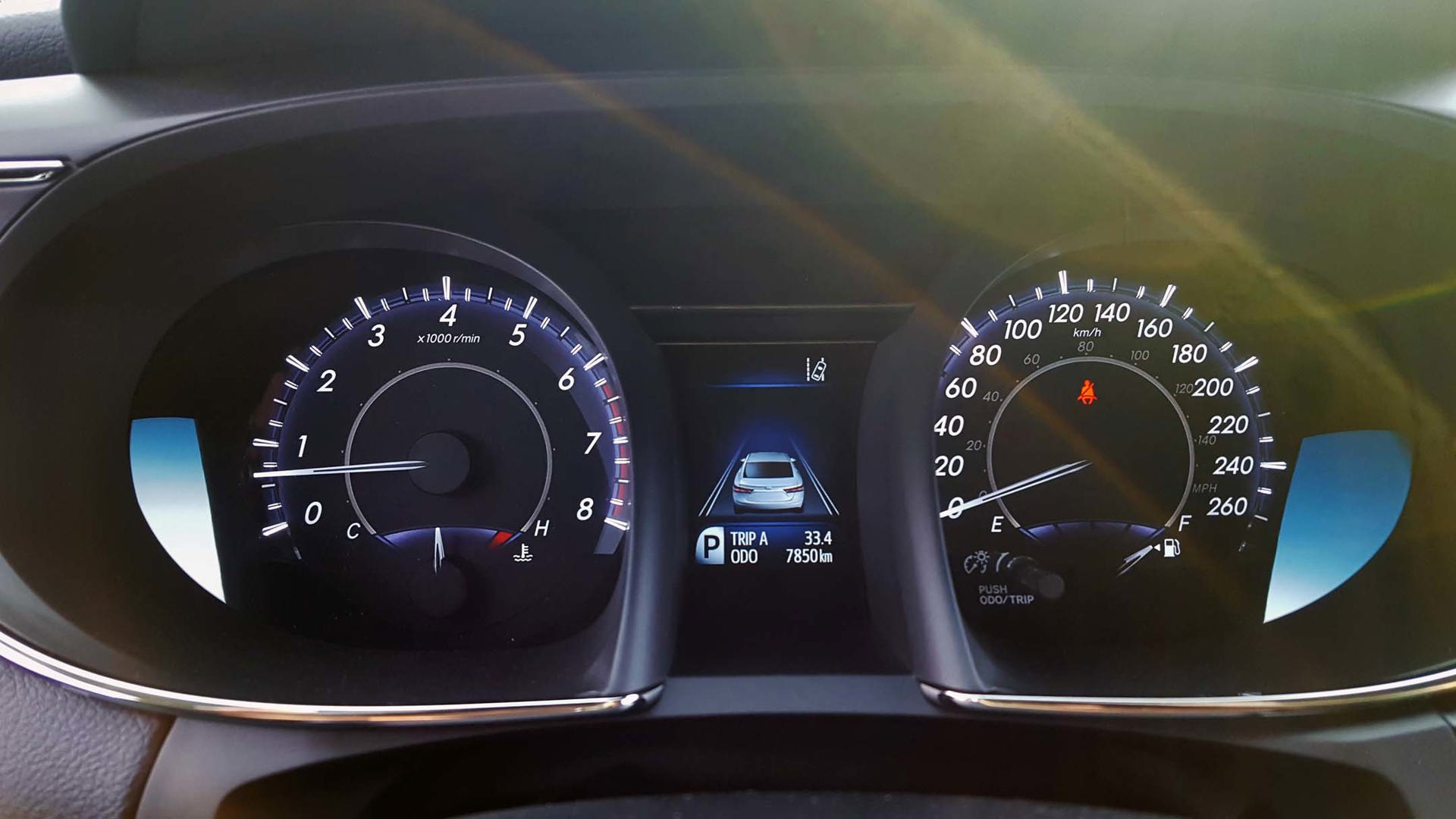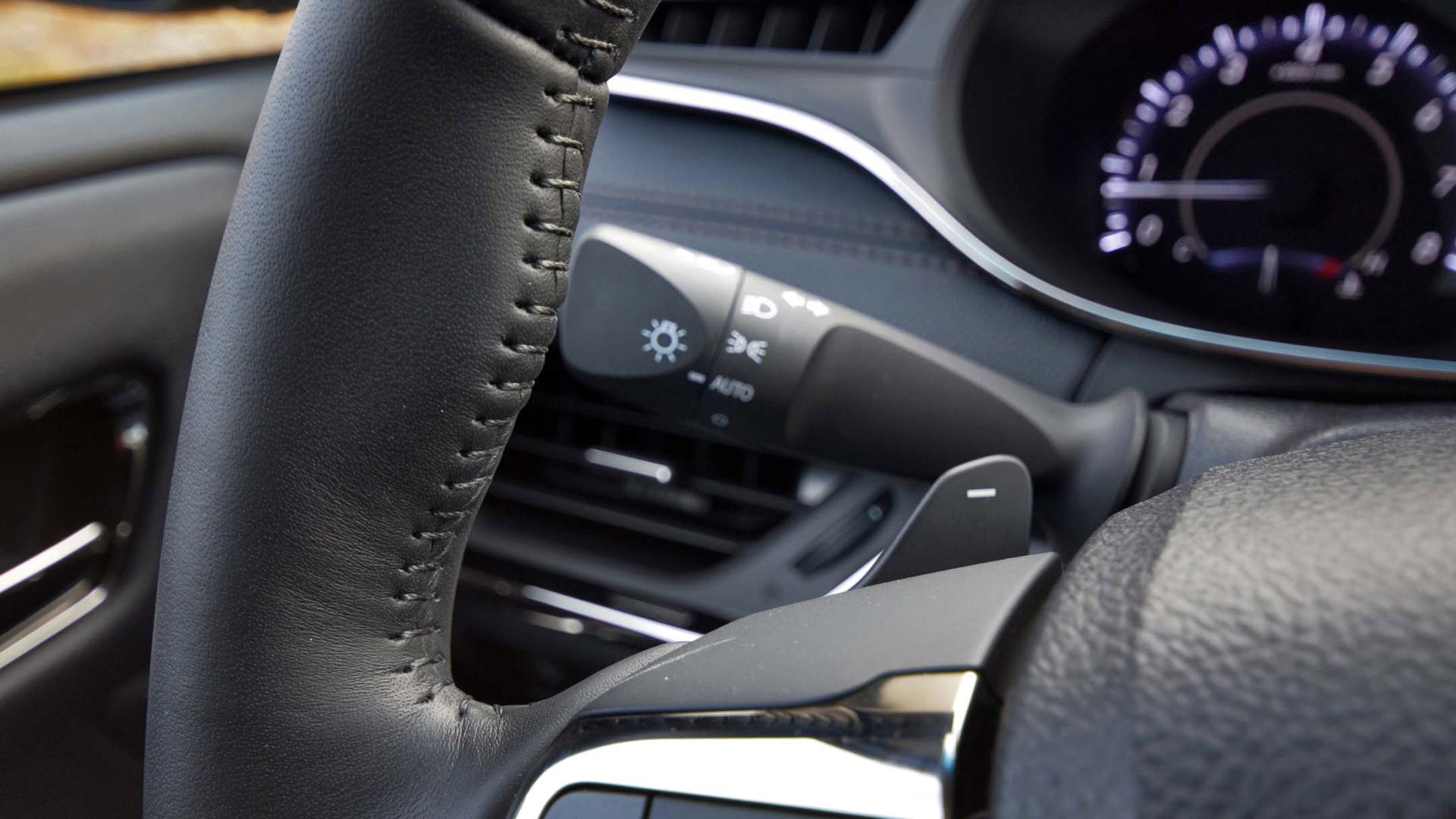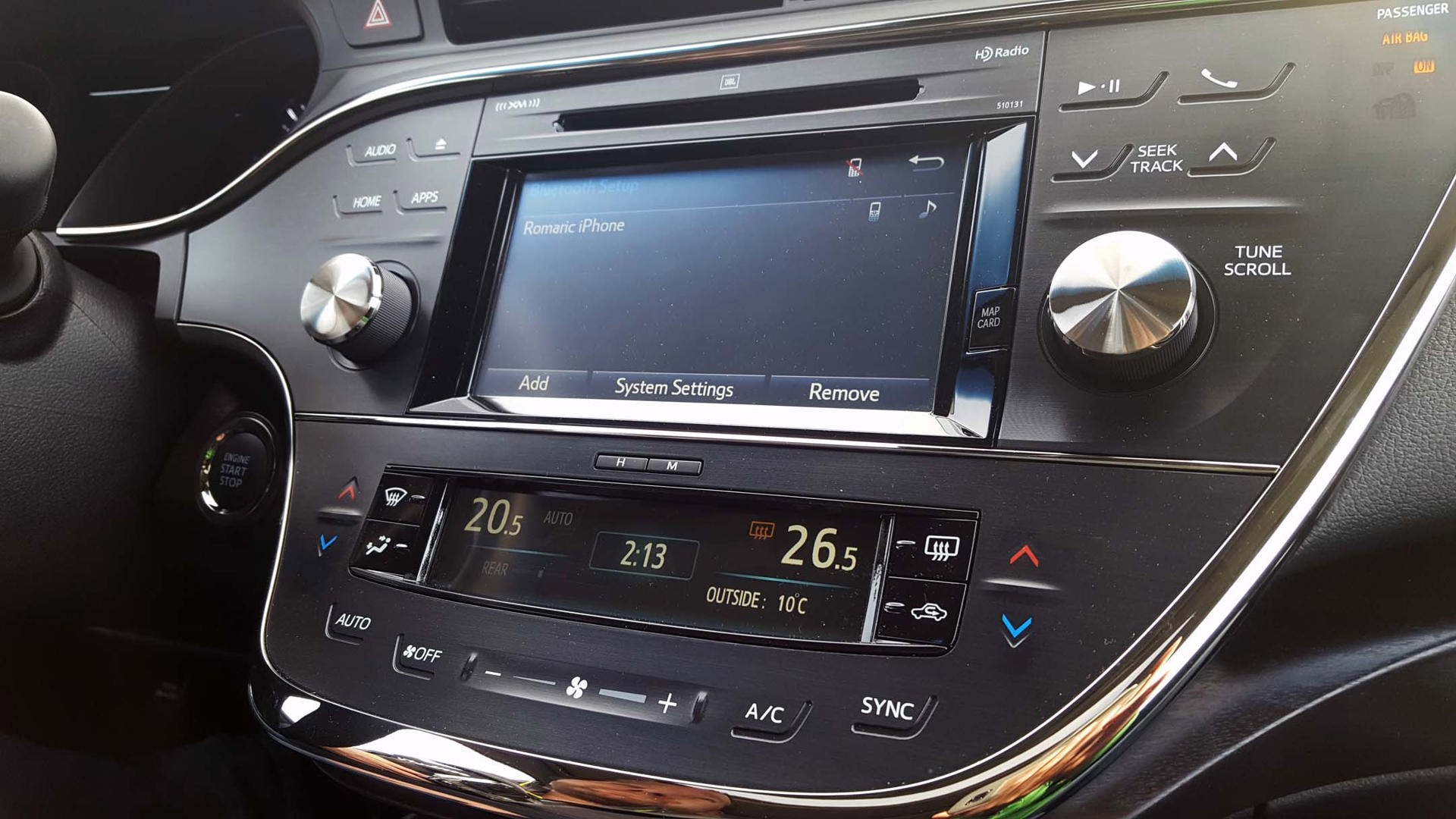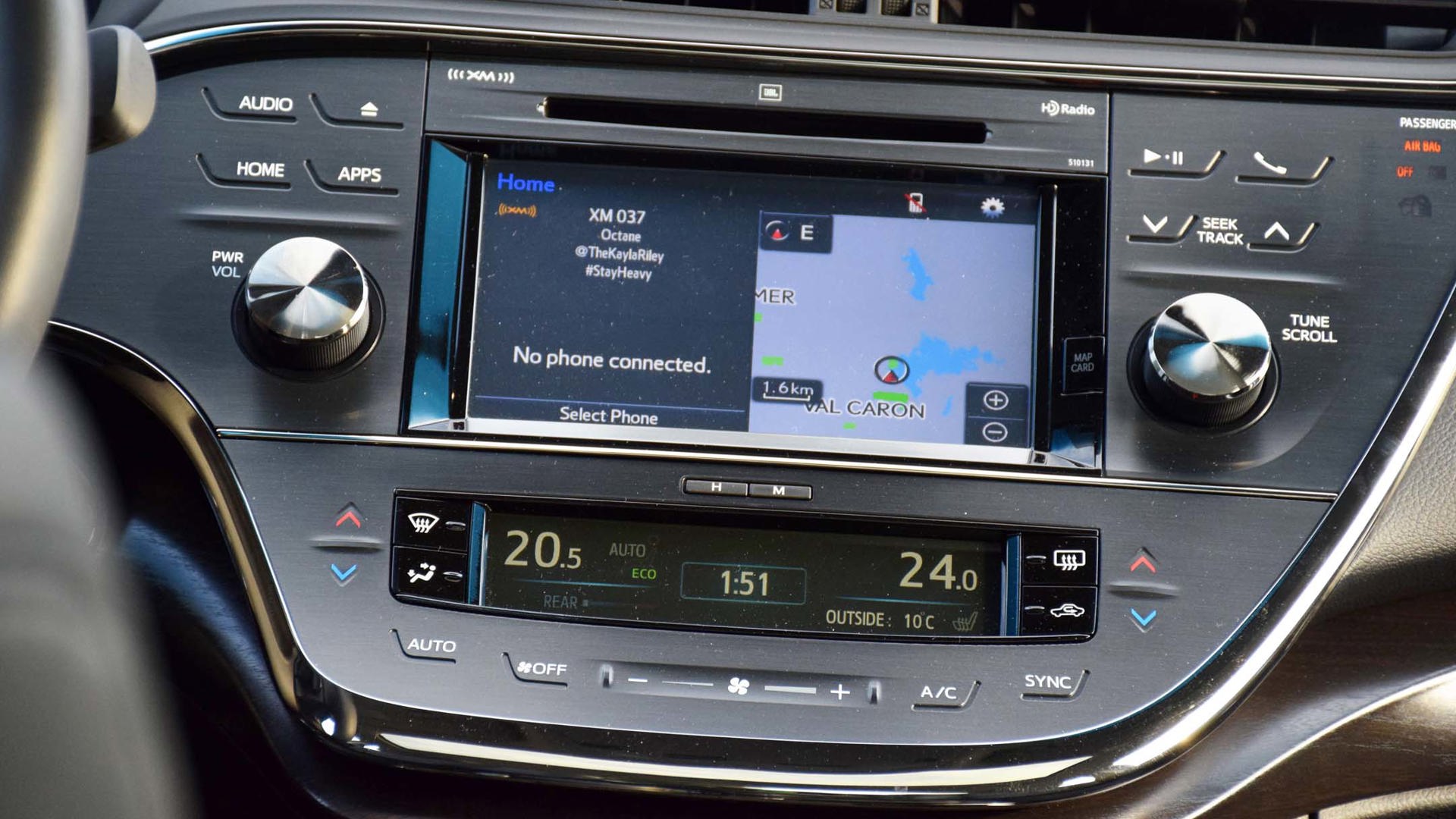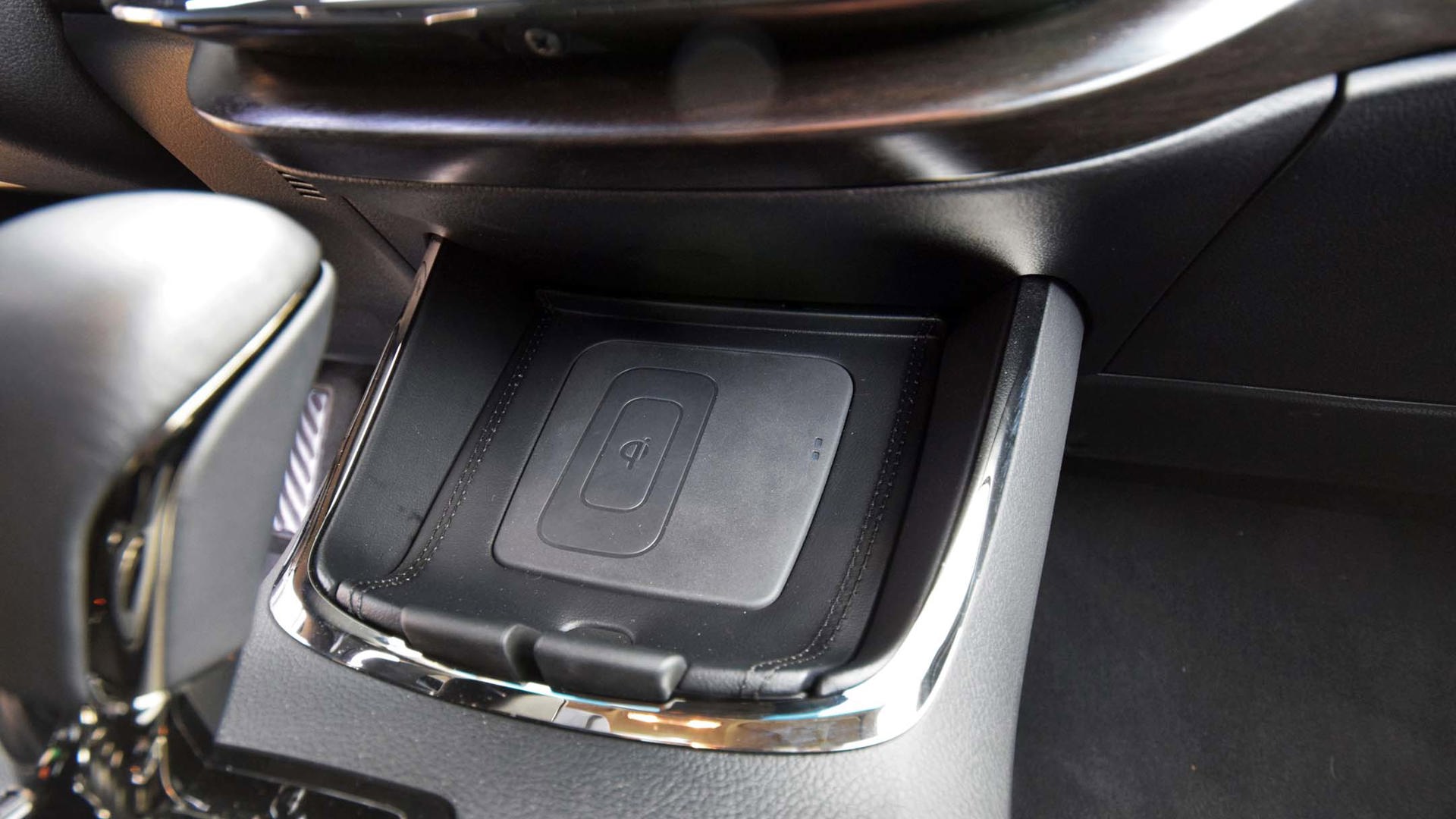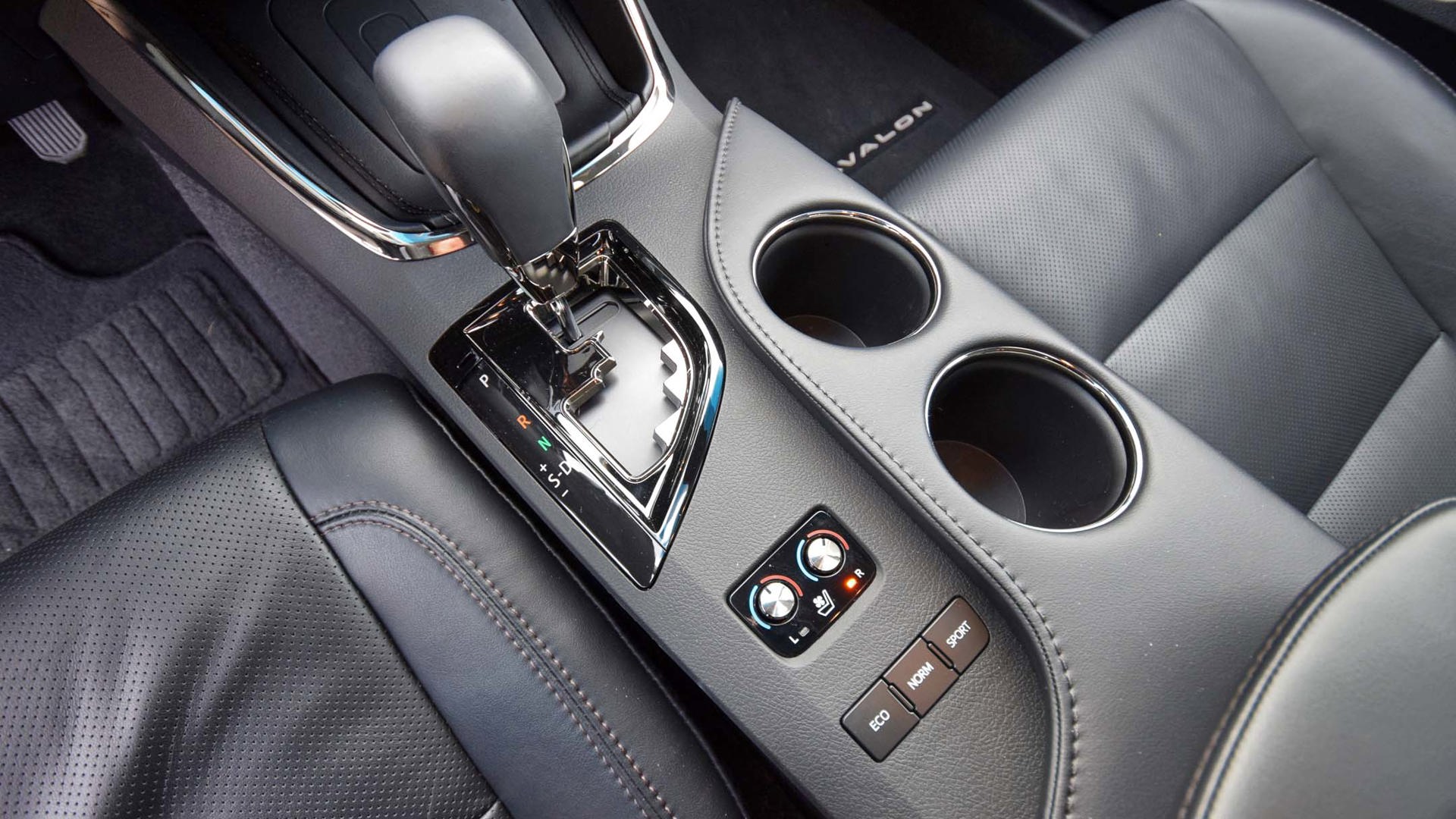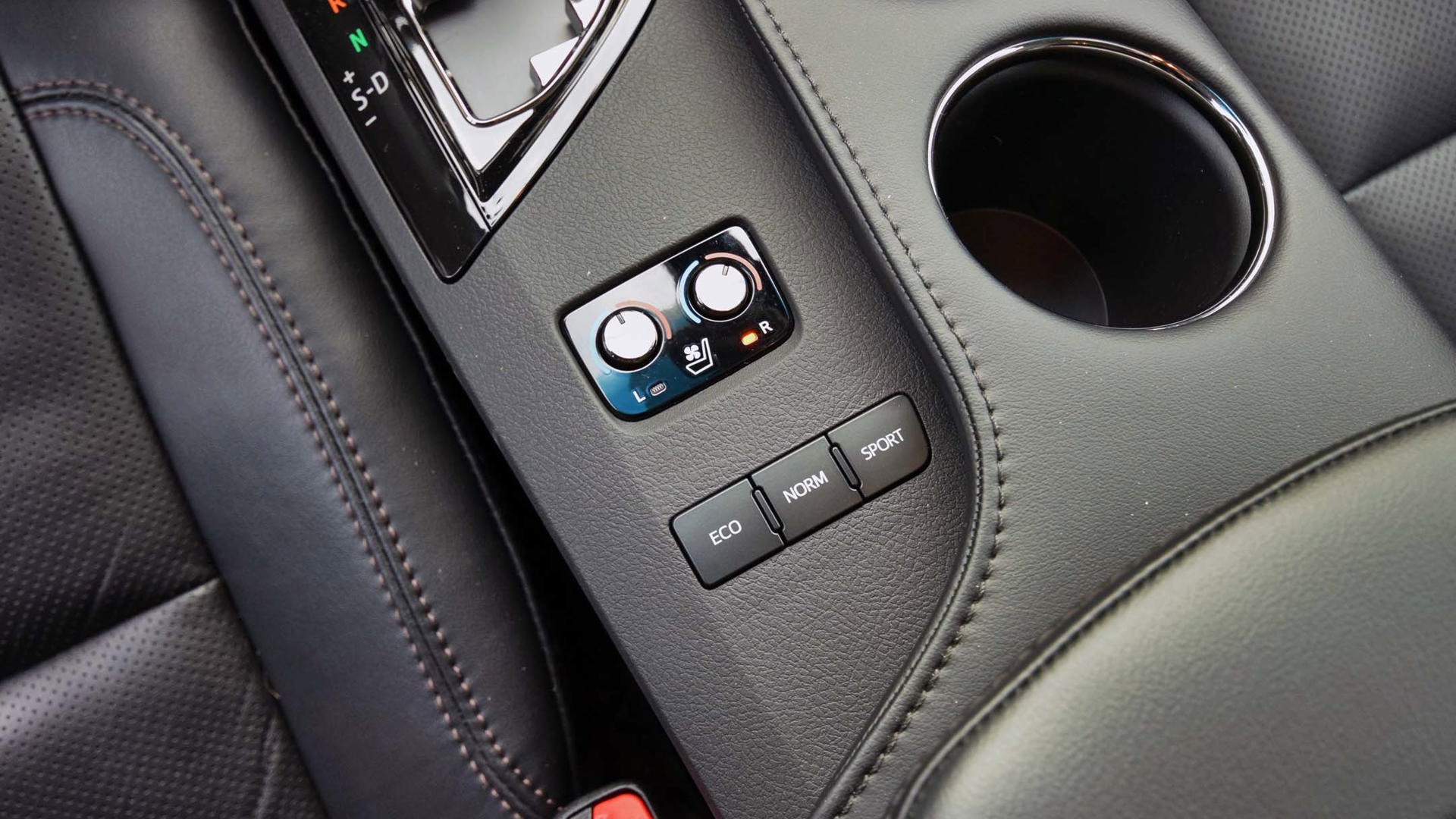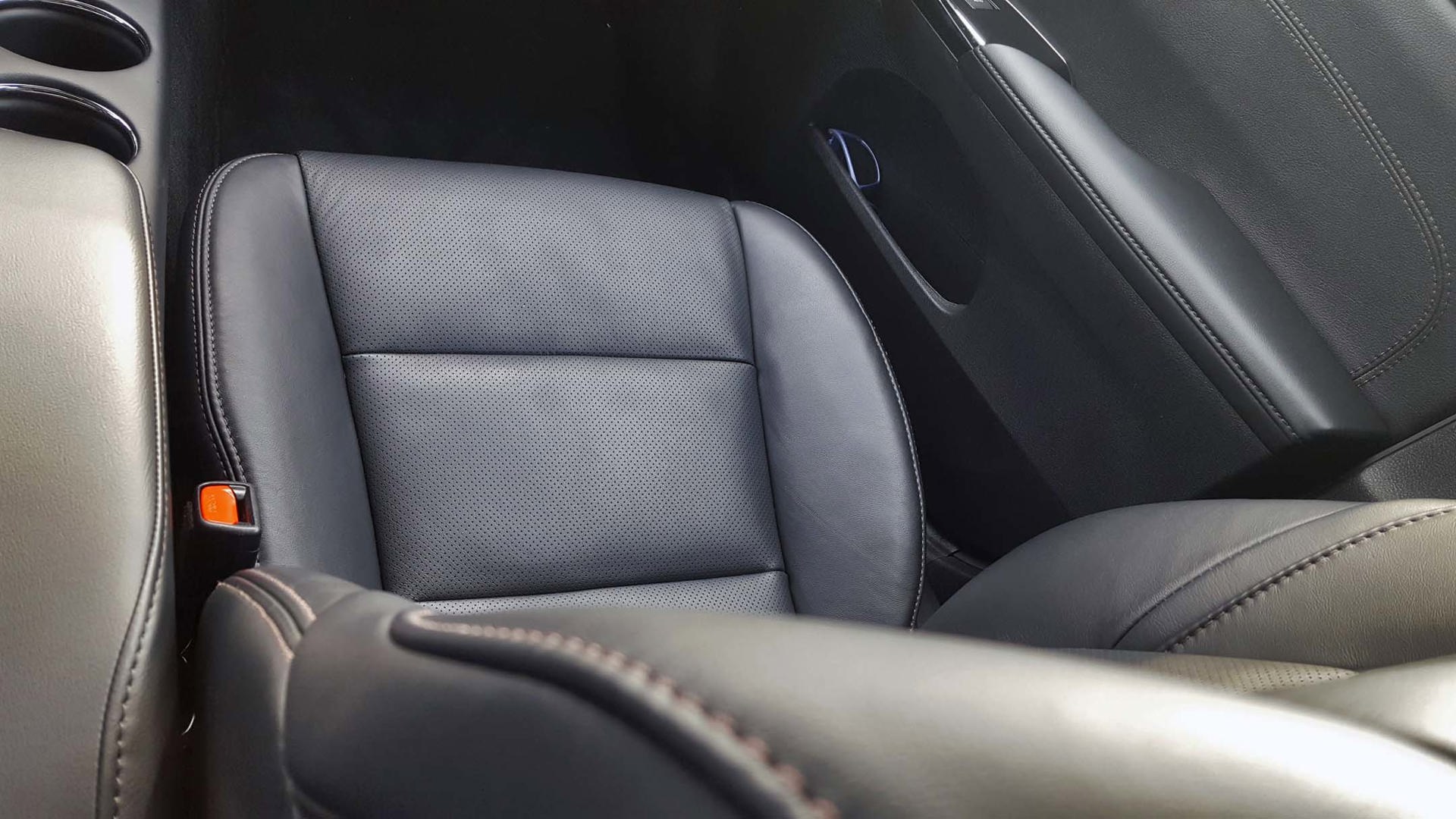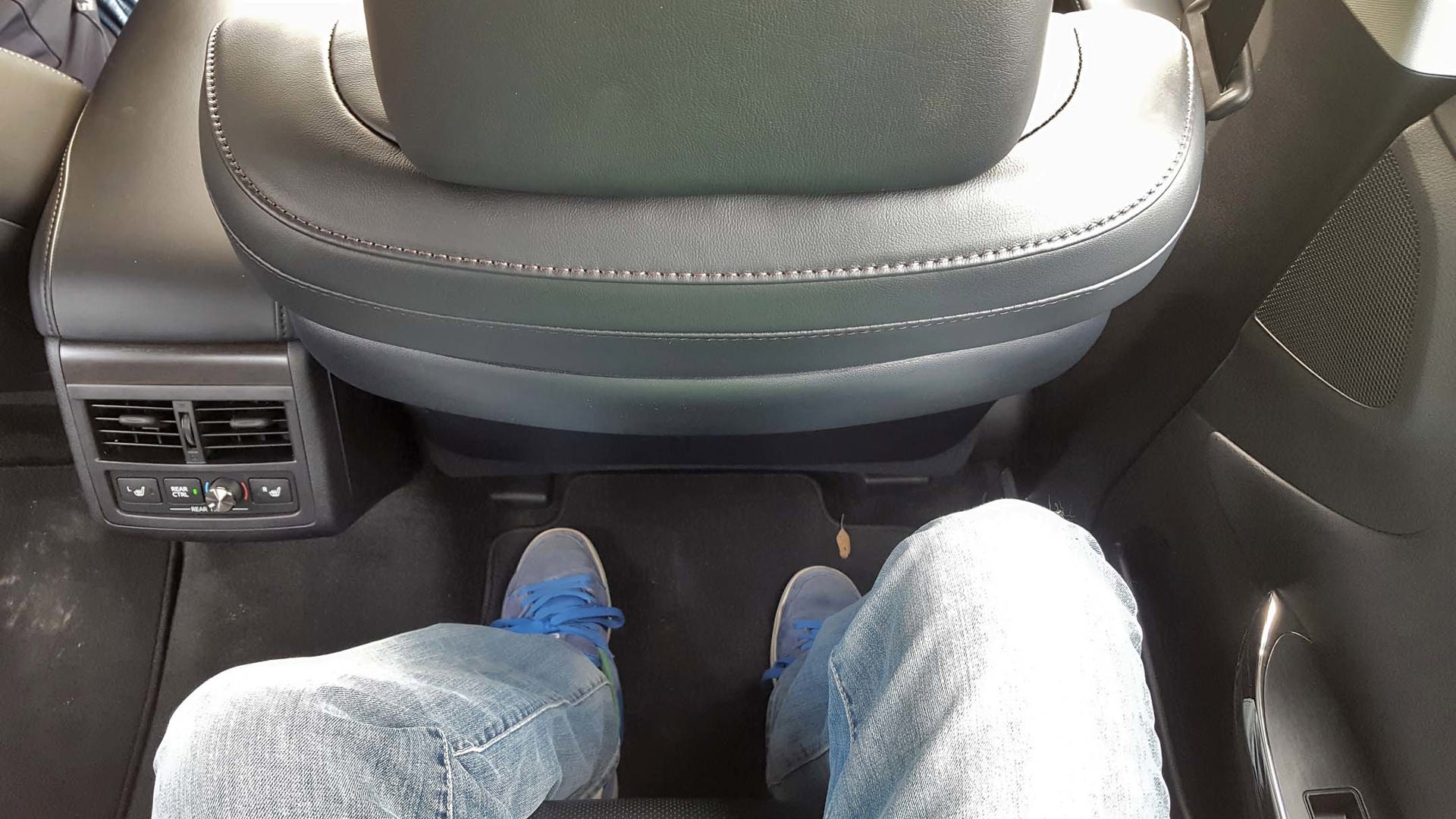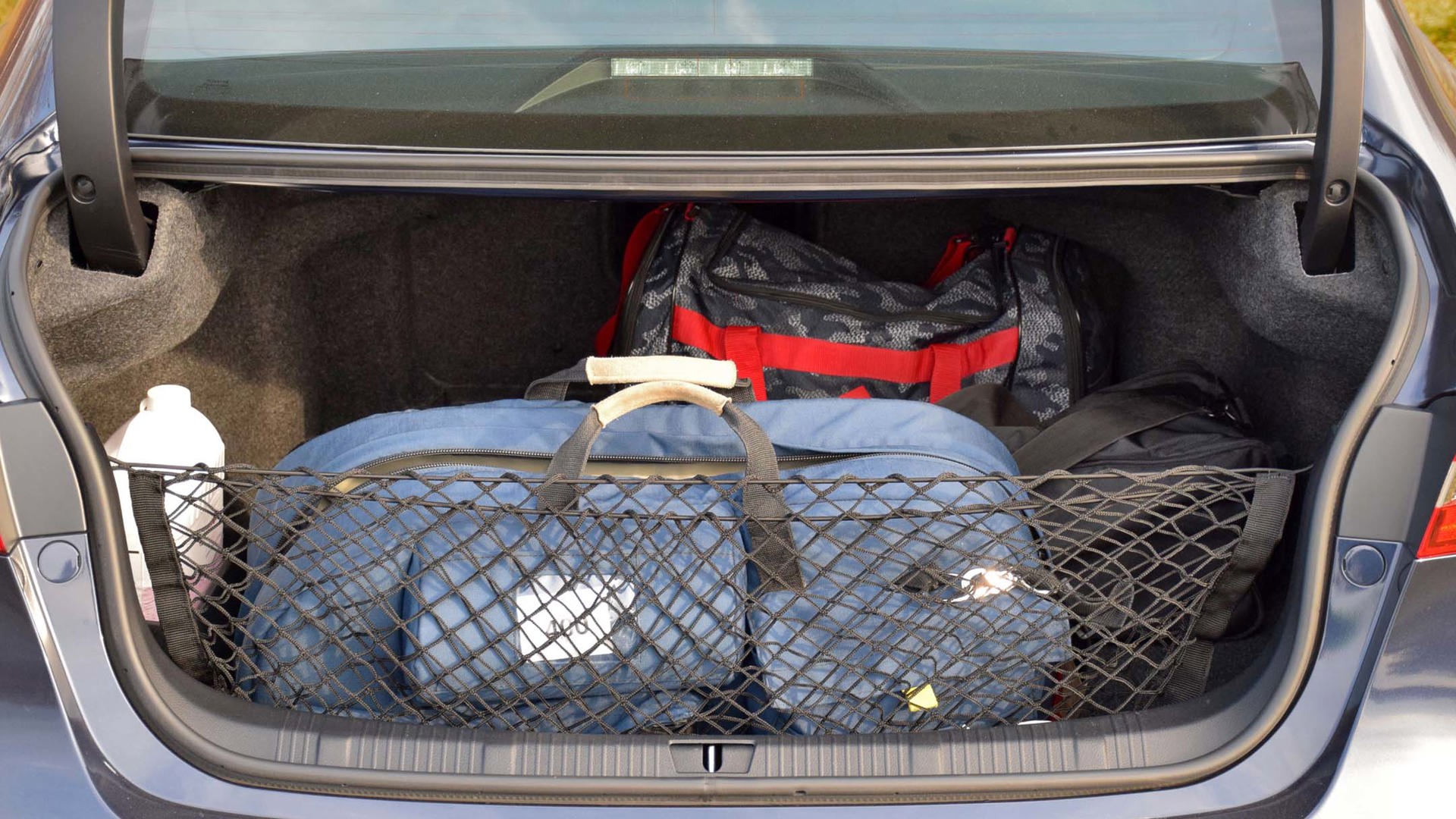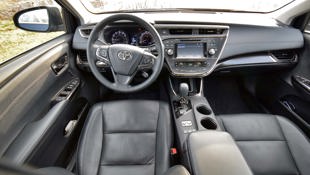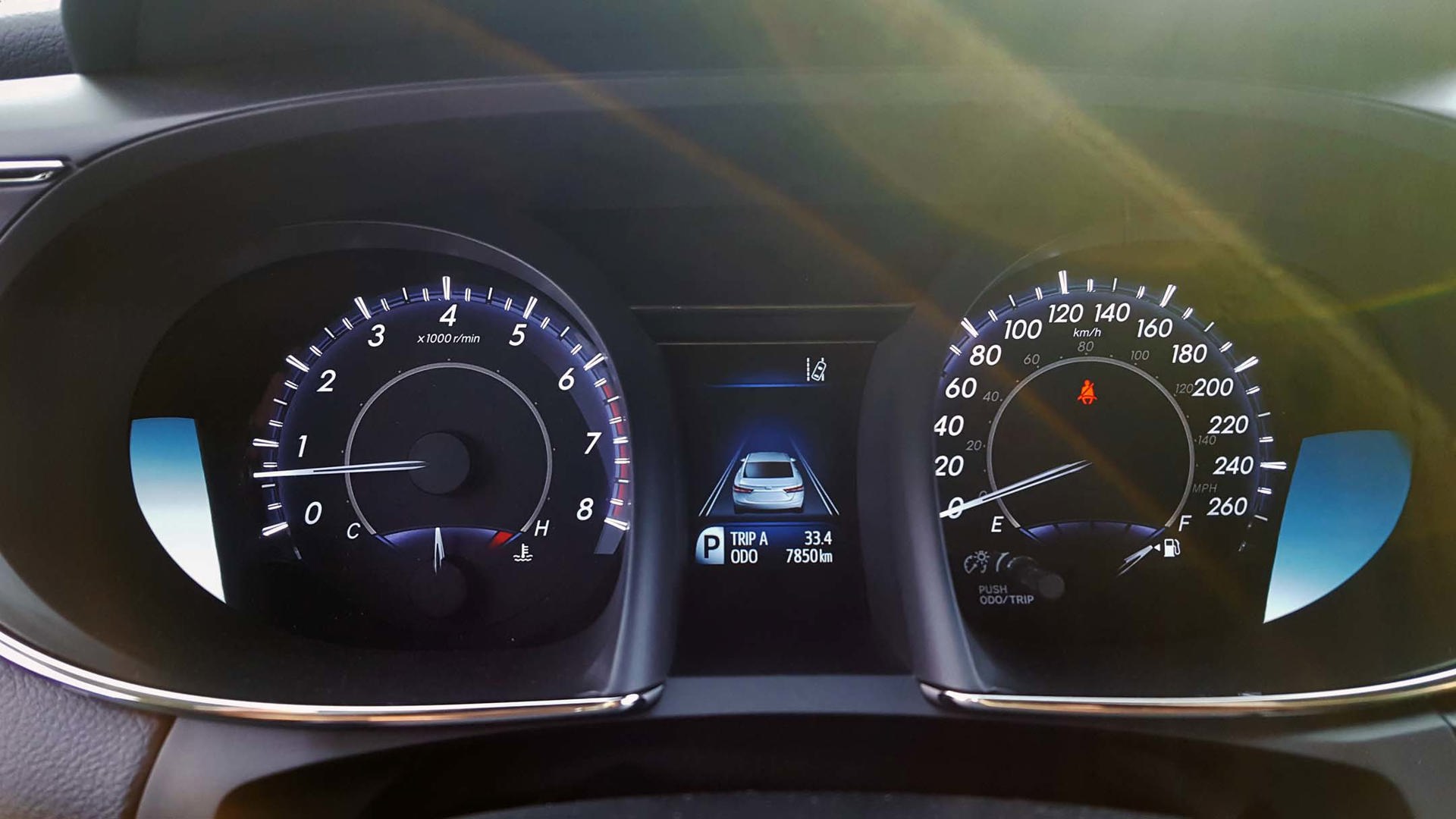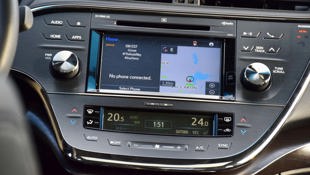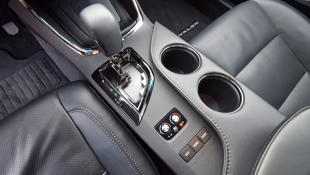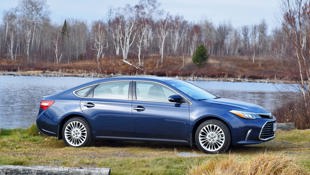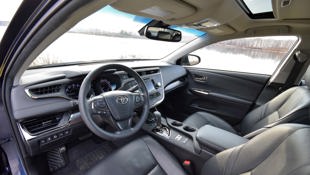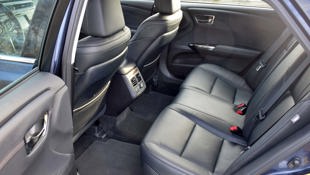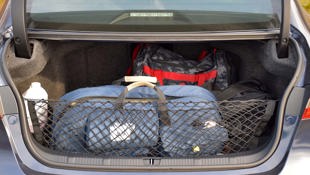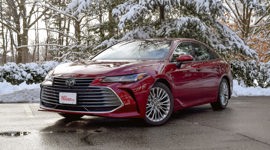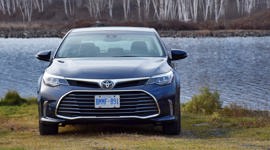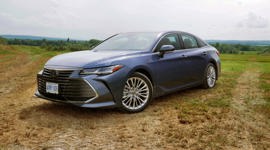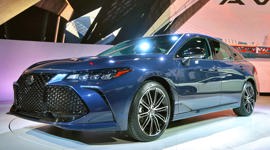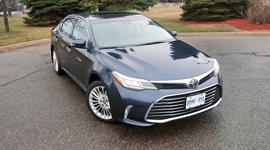 AutoTrader SCORE
AutoTrader SCORE
-
STYLING7/10
-
Safety8/10
-
PRACTICALITY8/10
-
USER-FRIENDLINESS9/10
-
FEATURES8/10
-
POWER8/10
-
COMFORT9/10
-
DRIVING FEEL8/10
-
FUEL ECONOMY8/10
-
VALUE8/10
Friendguy insisted on driving us to visit a high-school buddy. We’re in his old Mazda3, on the Don Valley Parkway in Toronto: a winding stretch of divided highway where traffic can rapidly go from moving to stopped without notice, and where it did.
The top version of Toyota’s top car: a sub-$45,000 flagship that intends to give drivers a taste of the motoring high-life on the daily.
We’re hauling up on this big BMW that’s nearly stopped just ahead, rapidly running out of space. I glance over. Friendguy is reading the exit signs overhead. He doesn’t see the BMW.
I’m a horrible passenger. And now, I’m sitting on my hands, biting my tongue, and we’re running out of room.
“Dude heads up!” I shout rudely.
“Whoah!!” Friendguy yelps, jamming the brakes, anticipating a speed-date with an insurance claim and a tow truck caused by his three-second glance at the exit signs. Friendguy is now freaking out, and wondering how not to hit that BMW.
Thankfully, the adjacent lane was clear, and we avoided catastrophic consequences by half a car length. Had there been someone in the adjacent lane, or had it been raining, I’m not sure if either of us would be eating solid food for a while.
Take this as an illustration of the benefit of next-level safety systems, including forward collision warning technology. If Friendguy’s old Mazda3 had it, his attention would have been grabbed two or three seconds earlier, providing plenty more time to brake.
Do these features encourage bad driving or compensate for inattentiveness? Maybe so, maybe no – but anyone can have a lapse, and a system like this can save your life, and others, if you do.
The 2017 Toyota Avalon has forward emergency braking, as just one part of a standard array of outward-looking hazard detection technologies that make it easier for drivers to stay aware of the goings-on in their motoring world. It can use radar to monitor blind spots, alert drivers of an approaching car as they back into a laneway, or to maintain a safe following distance under cruise control; its cameras make sure you’re not accidentally leaving your lane. The list goes on.
And this is all standard stuff, once reserved for six-figure luxury flagships, and included here as standard in the $44,540 loaded-to-the-eyeballs tester. This advanced radar-powered “safety for all” ideology is Toyota’s latest mission: these features are rolling out hard and fast as standard in everything Toyota sells – but they’re far from mind in the Avalon’s driving experience, much of the time.
The tested Avalon was the top version of Toyota’s top car: a sub-$45,000 flagship that intends to give drivers a taste of the motoring high-life on the daily. It’s not pretentious, looks handsome and stately without shouting for attention, and answers the call of shoppers after discreet luxury, good long-term value, and a lot of comfort and tech for not a lot of money. It’s Camry-like in ways, albeit wider, longer, more spacious, especially more spacious in the rear, and flaunting a touch more cargo room. The cabin is also gussied-up something fierce: well-appointed and high-tech all at once, much of the Avalon’s interior could do double-duty in a not-that-old Lexus.
Multiple layers of glossiness, texture, trim, and colour intersect, and the central command console features a large colour screen for the main controls, and a smaller one for the climate control system. Control knobs for the potent JBL stereo are metallic and textured and call a high-end home audio receiver to mind. Other buttons are of the click-free, touch-sensitive variety. Add in the centre bin with slide-away smartphone wireless recharging mat, and you’ve got a unique atmosphere that’s authentically luxurious and advanced all at once.
And you cruise the highway, with the radar cruise adjusting speed and following position invisibly, and as smoothly as similar systems fitted to any six-figure luxury car I’ve visited recently. The Avalon glides along: at lower highway cruising speeds, the slight pitter-patter of tires on tar strips, and the odd lick of wind noise at the window seals, are all that eat away at an otherwise tranquil ride.
Here, Avalon impresses most with demonstrated expert calibration as a long-haul highway cruiser. The steering is light and lazy when manipulated, but locks nicely into its lane when left alone. There’s minimal need for readjustment, and maximum ease of maneuvering. The suspension has a subtle firmness buried within the soft dampers to keep it from bounding and bouncing excessively, keeping things sharper and tidier than you think when the car is pushed. It’s dialed in to be absolutely comfort-first, but without riding like a geriatric land-barge.
Perhaps most notable is how dense and robust the Avalon’s suspension feels. Even over large bumps and dips and potholes, the suspension never transmits much noise or harshness back to the cabin – soaking up pavement upsets quietly and without fuss, like many a pricier ride. Put simply, all but the roughest road surfaces do little to break the comfort or quiet.
And there’s good outward visibility. The seats are comfortable, slippery and pillowy. Instruments and controls are set low, to enhance your driving position and outward view. Here’s an easy car to cruise in, with a relaxed command of the world around you. And should you have a lapse in attention, those safety systems all have your back.
Toyota’s proven 3.5L V6 is on duty under the hood. Avalon’s powertrain is technologically unremarkable in 2017: an all-motor 3.5L V6 with 268 hp, a six-speed automatic in a sea of eight- or nine-speed units, and front-wheel drive. Seems Toyota’s got a good thing going with this powertrain, anyways: at low revs, the engine is creamy smooth, virtually inaudible, and glides the Avalon to speed with solid, all but noiseless thrust. Push it harder, and a robust mid-range keeps plenty of power flooding to the road. Open it up, and power ramps up gleefully at higher revs, where the engine’s classy and subdued growl comes to life, as pleasing levels of thrust vigorously push smiling drivers into their seatbacks. For a car designed to be relaxing and quiet, it scoots urgently when called upon, sounds good doing it, and never feels overloaded.
Brakes bite hard from an initial press, though the pedal isn’t overly precise, presumably to keep touchiness to a minimum. Still, Avalon gets stationary in quick order, impressing with how hard it feels like it’s working to pull the car down from speed.
So, to sum up the drive? Avalon is full-on comfortable, but without being overly vague, floaty or soft. Like many of today’s big-dollar luxury branded sedans, they’ve done a good job engineering it to be very comfortable, but not at the all-out expense of driving enjoyment or precision. It’s luxurious and plush, but doesn’t feel like a soggy road-waffle.
Other notables? Rear seats are easily accessed via big door openings, and offer space galore, especially in the legroom department. Even adults of the larger variety will have space to spare. For those who want to give their rear-seat passengers first-class treatment, Avalon’s rear seating quarters will do the trick. There’s even a dedicated rear-seat climate control zone, and a rear window sunshade.
The trunk supplements this: deep, wide, and generous, it’ll readily swallow up numerous bags for that lengthy road trip.
Complaints included a navigation and central command screen which, despite being easily learned, are looking dated and low-tech compared to numerous competitors. The all-LED headlight system is good, not great after dark: about average as cars go. Finally, at higher highway speeds, wind noise became a little more intrusive than I like in a 40-plus-thousand dollar ride.
Ultimately, here’s a not-so pricey luxury car that feels like a pricier luxury car in many areas where it counts, demands little of its driver, and puts a nicely dialed-in ride, handling and steering balance on offer. If you’re after a relatively affordable ride that’s well-suited for relaxation, socialization and unwinding on the open road, it’s worth a test-drive. Cross-shopping exercises should include the sportier Nissan Maxima, and the more striking and high-tech Buick LaCrosse.
| Engine Displacement | 3.5L |
|---|---|
| Engine Cylinders | V6 |
| Peak Horsepower | 268 hp @ 6,200 rpm |
| Peak Torque | 248 lb-ft @ 4,700 rpm |
| Fuel Economy | 11.4/7.7/9.7 L/100 km cty/hwy/cmb |
| Cargo Space | 453 L |
| Model Tested | 2017 Toyota Avalon Limited |
| Base Price | $44,170 |
| A/C Tax | $100 |
| Destination Fee | $1,690 |
| Price as Tested | $45,960 |
|
Optional Equipment
None
|
|
